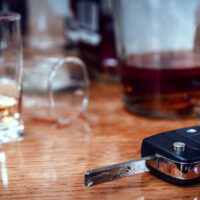Can I Be Sued For Drunk Driving?

Driving while under the influence of alcohol is treated as a serious crime in Florida, simply because the potential for harm is so high. Most drivers stopped while driving under the influence will wind up charged with a crime, facing imprisonment and fines even for a first offense. However, regardless of whether a drunk driver is charged with a crime, the person they injured has the right to file a civil action against them if the law permits, trying to recover monetarily for the expenses they have incurred and the harm they have suffered. Civil suits against DUI drivers can sometimes help an injured victim keep their finances where they need to be.
Can The Injured Person File?
The first hurdle a plaintiff must overcome before they can file suit against you is the total expense of your medical bills. Florida has a no-fault insurance system in place, which means that if a person’s medical bills are under a certain threshold, they cannot file suit to recover damages; rather, they are expected to file a claim with their personal injury protection insurer (state law requires every Florida driver to carry at least $10,000 in PIP coverage and $10,000 in property damage liability coverage).
Alternatively, the average person often tries to argue that a criminal conviction for driving under the influence means that no civil suit can be filed against them, due to the Fifth Amendment of the U.S. Constitution. The Fifth Amendment bars double jeopardy, meaning that a person cannot be criminally tried twice for the same crime. However, the civil and the criminal justice systems are two different entities. A criminal conviction does not bar any kind of civil proceeding, because the trial and the civil suit are governed by entirely different laws.
After Filing
If the plaintiff’s medical bills rise over $10,000, the prohibition against filing suit will be lifted, and a lawsuit can be filed under a theory of negligence. Most negligence cases are fairly straightforward, and DUI cases can be simple as well. This is even more so if a legal theory called negligence per se applies. if an attorney wants to argue negligence per se, all they need to show is that the defendant violated a law in causing the accident, and the broken law was designed to protect a class of people to which the injured plaintiff belonged. This is not always usable in DUI cases, but it is worth investigating, as it can decidedly streamline the legal process.
It can be quite difficult to absolve yourself of civil liability to an injured plaintiff, particularly if you were tried criminally before the civil proceedings began – because criminal court requires a higher standard of evidence for admissibility, it means that almost every piece of evidence about the incident that was shared during the criminal investigation will be declared admissible in civil court. That said, you do have the right to argue mitigating factors or affirmative defenses. For example, if the plaintiff was driving recklessly at the time of the accident, their monetary recovery may be significantly diminished.
Call A Tampa Personal Injury Attorney
If you have been charged with driving under the influence, you will often have to face civil penalties as well as criminal charges. If you need help determining how best to get through the legal process, the Tampa personal injury attorneys at the Rinaldo Law Group are ready to try and assist. Call our offices today for a free consultation.












